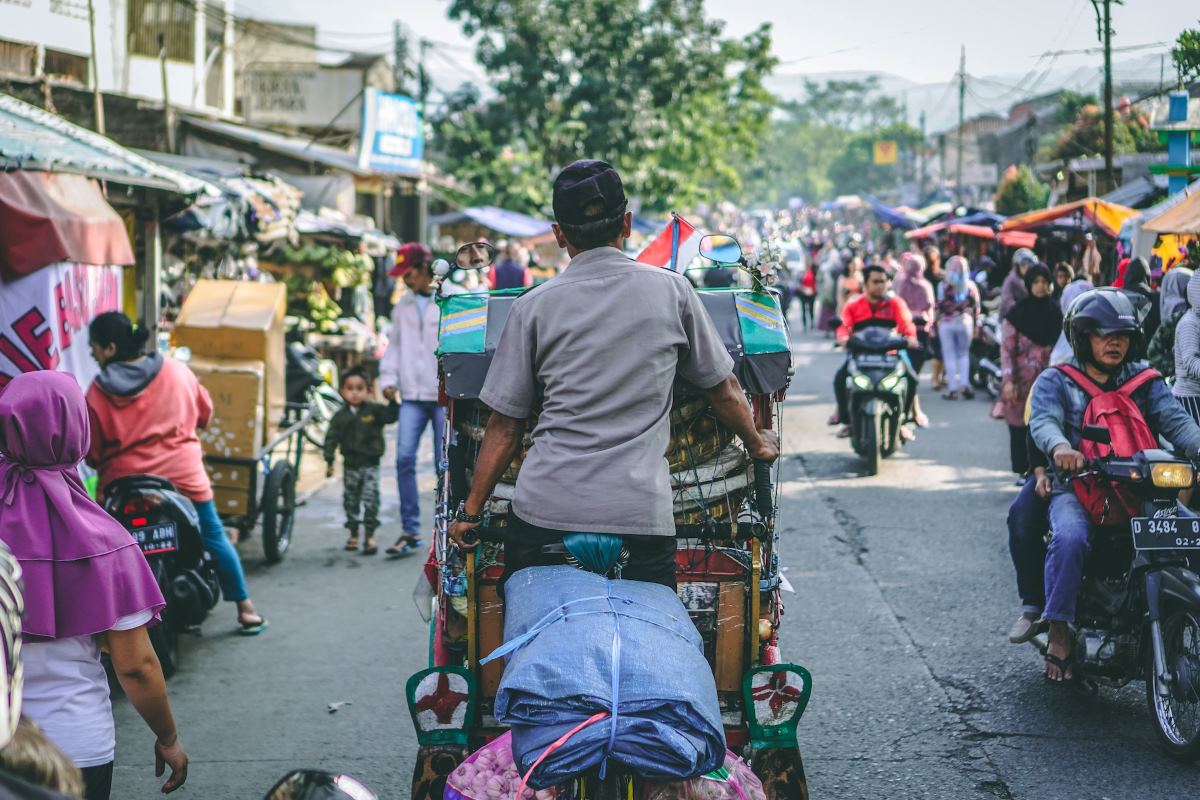Table of Contents
ToggleThese are a few statutory updates that are effective in 2024 for Indonesia.
Effective December 2024
Indonesia Increases Application Fees for Work Permits and Stay Permits
The Indonesian government has announced significant fee increases for various visa types, including:
- Short-Term Work Permit: Increased to IDR 5,250,000 (previously IDR 1,800,000) plus an additional USD 150.
- Long-Term Work Permit (LTWP): Increased to IDR 7,000,000 (previously IDR 2,700,000) plus USD 150.
- LTWP Renewal: Increased to IDR 4,500,000 (previously IDR 2,500,000).
- New Stay Permit for Dependents: Increased to IDR 6,000,000 (previously IDR 2,700,000) plus USD 150.
- Permanent Stay Permit (KITAP) for Five Years: Increased to IDR 11,000,000 (previously IDR 6,750,000).
- KITAP Unlimited: Increased to IDR 23,000,000 (previously IDR 11,950,000).
Fees for multiple-entry visas and other services have also increased.
Source: Fragomen
Effective July 2024
New Law on Maternal and Child Welfare
Law 4/2024 sets out several rights for working mothers, working fathers, and other general issues, including:
- the right to maternity leave: 3 months of maternity leave after giving birth, with up to an additional 3 months if there is a special circumstance as evidenced by a doctor’s certificate
- the right to salary during maternity leave: 100% of salary during the first three months and fourth month, and 75% of salary during the fifth and sixth months
- the right to leave due to miscarriage: paid leave of 1.5 months or any other period as recommended by a doctor, obstetrician or midwife in the event of a miscarriage. Working fathers are also entitled to 2 days of paid leave in the event of a miscarriage.
- the right to adequate facilities and time to express and store breast milk while at work
- the right to sufficient time off in their children’s best interest
- the right to affordable daycare
- the right to paid paternity leave: 2 days of paid paternity leave during delivery and up to an additional 3 days after delivery or other period as may be agreed with the employer.
Employers must also adjust the duties, work hours and/or workplace of working mothers as necessary, while still considering work conditions and achievement targets. The Manpower Law is mostly in line with and supports this new law, except for inconsistency in salary requirements during maternity leave, and the amount of paid paternity leave which the Ministry of Manpower needs to address.
Criminal Sanctions for Employers
The Manpower Law stipulates criminal sanctions for employers that violate the maternity leave provisions in the form of imprisonment ranging from one to four years and/or fines from Rp.100 million to Rp.400 million.
Source: SSEK
Clarification on Tax Treatment of Compensation Received in the Form of Benefits
Non-cash benefits outlined in employment agreements, contracts, pay slips or similar documents are treated as compensation. These benefits can also be seen as supplementary incentives, such as bonuses or incentives. This applies to both employees and non-employees.
Benefits in Kind from the Employer
- Vehicle facilities
- Healthcare facilities and medical treatments
- Education and/or training facilities
- Discount facilities
Requirement for Employers w.r.t. Benefits in Kind
In the Annual Income Tax Return. employers must include all compensation costs, including benefits and perks. Non-cash benefits, including price reductions, special loans, and stock options provided by employers, must be disclosed.
Source: Ramco
Extension of Nomor Pokok Wajib Pajak (NPWP) in Lieu of Nomor Induk Kependudukan (NIK)
- NPWP = Taxpayer Identification Numbers
- NIK = Residential Identity Number
- A new amendment from the Ministry of Finance, Regulation No. 136/PMK.03/2023, allows for the continued use of the NPWP by Resident Individual taxpayers until June 30, 2024, under specific terms.
- Individuals with invalid data may still use the 15-digit NPWP format until June 30, 2024, after which they must validate their identity to continue accessing tax administration services.
- Business entities’ branch NPWP and first-time taxpayer identification will remain valid until the stipulated date, with the NIK to replace the NPWP completely post July 01, 2024.
Source: Replacement of NPWP with NIK.pdf
Effective May 2024
Changes to Public Housing Savings
- Coverage of private sector employees, expatriate workers in Indonesia for at least six months, and self-employed individuals.
- A mandatory contribution of 3% of salary compensation to the Tapera fund, with employers contributing 0.5% and employees contributing 2.5% each month.
Source: BPK
Effective April 2024
Digital Nomad Visa
The government of Indonesia implemented the Remote Worker Visa (E33G) program. The visa will allow eligible foreign nationals to reside in Indonesia while working remotely for their home employer for a period of up to one year (subject to renewal for another year). Eligibility requirements are mentioned in the link.
Source: Fragomen
Effective March 2024
Maximum wage cap increased for pension insurance contributions
Under Peraturan Pemerintah Nomor 45 of 2015, the Indonesian Social Security Administration for Employment (BPJS Ketenagakerjaan) is required to adjust the ceiling of wages annually for the calculation of Jaminan Pensiun (JP) contributions. This adjustment is based on adding the prior year’s Gross Domestic Product (GDP) growth rate to a factor of one. The Central Statistics Agency (BPS) announced on February 5 that Indonesia’s GDP grew by 5.05% in 2023. Consequently, BPJS Ketenagakerjaan, via notification number B/1387/022024, has increased the maximum wage limit for JP contributions by 5.05%, resulting in a new ceiling of Rp. 10,042,300, up from Rp. 9,559,600.
Source: BPJS Ketenagakerjaan
Effective January 2024
Income Tax
The Indonesian Ministry of Finance has enacted a significant shift in individual income tax regulations, transitioning from annual to monthly taxation methods, as detailed in Regulation No. 58 of 2023. This modification was introduced to alleviate the complexities associated with over 400 potential tax scenarios and the administrative burden they caused. Key points include:
- The implementation of monthly and daily Taxable Earnings Rates (TER), in addition to the rates mentioned in Article 17, paragraph (1), letter a of the Income Tax Law, designed to streamline the withholding of Income Tax Article 21 for income derived from labor, services, or activities by individuals.
- The effective monthly TER applies broadly, covering private sector employees, state officials, civil servants, Indonesian National Military Forces and National Police members, as well as retirees.
- For all months except December, TER is calculated on the gross income of that month; December follows the regulations set forth in Article 17 of the Income Tax Law.
- The TER is segregated into three categories based on marital status at the beginning of the tax year:
- Category A: Single individuals with up to one dependent, and married individuals without dependents.
- Category B: Single individuals with two to three dependents, and married individuals with up to two dependents.
- Category C: Married individuals with three dependents.
More detailed information on the monthly and daily TER can be found in the regulation’s document file linked below.
Source: Salinan PP Nomor 58 Tahun 2023.pdf
Change in Badan Penyelenggara Jaminan Sosial (BPJS) Healthcare Minimum Wage Cap for 2024
- The calculation for BPJS Healthcare contributions now uses the regency/municipal minimum wage, or provincial minimum wage if the former is not established.
- A mandate from the Jakarta governor increased Jakarta’s Provincial Minimum Wage cap for BPJS Healthcare to Rp.5.067.381 per month, which sets the minimum monthly contribution for healthcare at Rp. 253.369.
Source: Surat Pemberitahuan UMK BU.pdf
Featured photo by Fikri Rasyid on Unsplash







